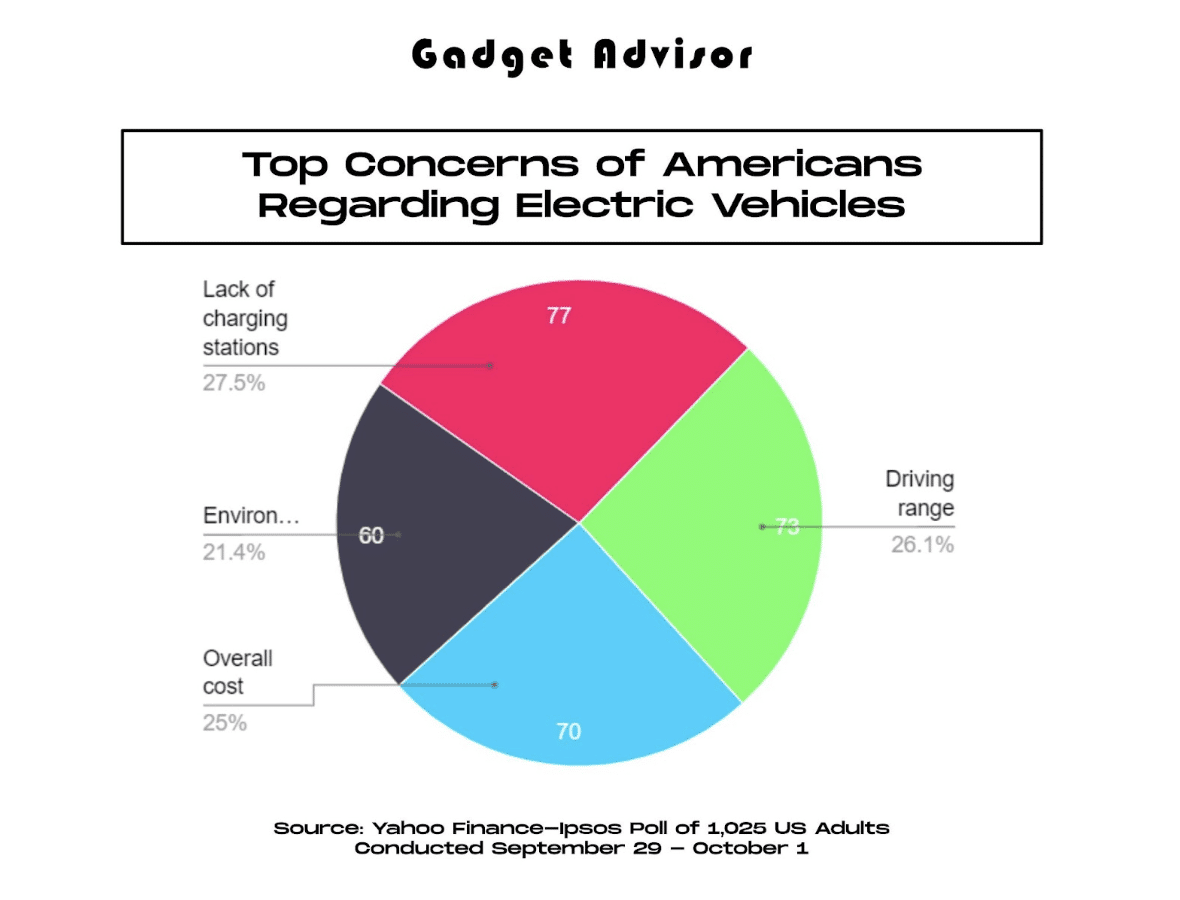Auto Dealers Double Down On Opposition To Electric Vehicle Regulations

Table of Contents
Financial Concerns and the Impact on Dealership Profitability
The transition to EVs presents substantial financial challenges for auto dealerships, threatening their current revenue streams and demanding significant upfront investments.
Reduced Profit Margins on EVs
Electric vehicles often yield lower profit margins for dealerships compared to their gasoline-powered counterparts. This is primarily due to the simpler mechanics of EVs, resulting in fewer service and repair opportunities.
- Reduced parts sales: EVs have fewer moving parts, leading to significantly less demand for replacement components.
- Less frequent maintenance: Electric motors require less maintenance than internal combustion engines, reducing service revenue.
- Impact on service department revenue: The decreased need for repairs and maintenance directly impacts the profitability of the service department, a crucial revenue stream for many dealerships.
- Potential for decreased overall dealership revenue: The combined effect of lower sales margins and reduced service revenue could significantly impact overall dealership profitability.
Investment in New Infrastructure and Training
Adapting to the EV era requires dealerships to invest heavily in new infrastructure and employee training. This represents a substantial financial burden, particularly for smaller dealerships.
- High upfront costs of installing charging infrastructure: Installing Level 2 and potentially Level 3 charging stations requires a significant capital outlay.
- The need for specialized EV mechanic training: Servicing EVs requires specialized knowledge and tools, necessitating costly training programs for dealership mechanics.
- Potential for financial strain on smaller dealerships: The substantial investment needed for infrastructure and training can be particularly challenging for smaller dealerships with limited financial resources.
Uncertainty surrounding Government Incentives and Subsidies
Government incentives and subsidies play a crucial role in driving EV adoption. However, the fluctuating nature of these programs creates uncertainty for dealerships planning for the future.
- Changes in tax credits: Frequent changes in tax credits and other incentives make it difficult for dealerships to accurately predict their future revenue streams.
- Potential for reduced subsidies: The possibility of reduced or eliminated government support creates significant financial risk for dealerships investing in EV infrastructure and training.
- Difficulty in long-term financial planning: The unpredictable nature of government support makes long-term financial planning extremely challenging for dealerships.
Concerns about Consumer Adoption and Market Readiness
Beyond the financial challenges, dealerships express concerns about the readiness of the market and consumer acceptance of electric vehicles.
Range Anxiety and Charging Infrastructure Gaps
Range anxiety – the fear of running out of battery power – remains a significant barrier to EV adoption. This concern is exacerbated by the lack of widespread charging infrastructure in many areas.
- Consumer hesitation due to range limitations: Many potential buyers are hesitant to purchase EVs due to concerns about limited driving range.
- Inadequate public charging network: The current public charging network is often insufficient, with uneven distribution and unreliable charging stations.
- Uneven distribution of charging stations: Charging stations are often concentrated in urban areas, leaving drivers in rural communities with limited options.
High Initial Purchase Prices of EVs
The high initial purchase price of EVs compared to gasoline-powered vehicles remains a major obstacle to widespread adoption, impacting sales for dealerships.
- Comparison of EV prices to gasoline car prices: The price difference between EVs and comparable gasoline cars can be significant, making EVs less accessible to many consumers.
- Impact on affordability and consumer purchasing power: The high cost of EVs limits their affordability, particularly for consumers with lower incomes.
Lack of Consumer Awareness and Education
Addressing misconceptions and promoting a better understanding of EV technology and benefits is crucial to increasing consumer adoption.
- Addressing myths about EV technology: Many consumers hold misconceptions about EV technology, such as charging times and battery life.
- Highlighting the benefits of EV ownership: Effective communication is needed to highlight the benefits of EVs, such as lower running costs and reduced environmental impact.
- Improving consumer understanding: Increased consumer education is essential to overcome misconceptions and promote wider acceptance of EVs.
The Lobbying Efforts of the Automotive Dealers Associations
Auto dealer associations are actively lobbying against stricter EV regulations, employing various strategies to influence policymakers.
Political Pressure and Influence
Dealer associations wield significant political influence, using various methods to lobby against regulations they deem unfavorable.
- Funding political campaigns: Dealer associations contribute financially to political campaigns of candidates supportive of their positions.
- Direct lobbying of legislators: They engage in direct lobbying efforts to persuade legislators to oppose or weaken EV regulations.
- Use of public relations campaigns: They employ public relations campaigns to shape public opinion and influence policy decisions.
Arguments used against stricter EV regulations
The arguments used by dealer associations often focus on economic impacts, job losses, and consumer choice.
- Economic arguments against rapid EV transition: They argue that a rapid transition to EVs could harm the economy and disrupt the automotive industry.
- Concern for the future of the auto industry workforce: They highlight the potential for job losses in the traditional automotive sector due to the shift to EVs.
- Emphasizing consumer freedom of choice: They emphasize the importance of consumer choice and argue against government mandates that restrict the availability of gasoline-powered vehicles.
Conclusion
The opposition to stricter electric vehicle regulations from auto dealerships stems from a combination of financial concerns, uncertainty about consumer adoption, and active lobbying efforts. Dealerships face significant financial challenges in adapting to the EV era, including reduced profit margins, investment in new infrastructure, and uncertainty surrounding government support. Furthermore, concerns about consumer acceptance, range anxiety, and the high initial cost of EVs add to their resistance. Understanding these concerns is crucial, but finding a balanced approach that supports both economic realities and environmental sustainability is paramount. Further discussion and collaborative efforts are vital to navigate the complexities of the transition to EVs and implement effective electric vehicle regulations that benefit both the automotive industry and the environment. Let's work together to create a future where electric vehicle adoption thrives.

Featured Posts
-
 Adele Lim Jon M Chu And Kevin Kwan Bring Crazy Rich Asians To Television
May 12, 2025
Adele Lim Jon M Chu And Kevin Kwan Bring Crazy Rich Asians To Television
May 12, 2025 -
 Who Could Be The Next Pope Leading Candidates And Their Platforms
May 12, 2025
Who Could Be The Next Pope Leading Candidates And Their Platforms
May 12, 2025 -
 Le Dechiffrage L Euro Resiste Aux Tensions
May 12, 2025
Le Dechiffrage L Euro Resiste Aux Tensions
May 12, 2025 -
 Conclave 2024 Exploring Potential Candidates For The Next Pope
May 12, 2025
Conclave 2024 Exploring Potential Candidates For The Next Pope
May 12, 2025 -
 Shane Lowry Viral Video Creates A Stir Among American Golf Viewers
May 12, 2025
Shane Lowry Viral Video Creates A Stir Among American Golf Viewers
May 12, 2025
Latest Posts
-
 Is Thomas Mueller Leaving Bayern Munich Analyzing The Fan Reaction
May 12, 2025
Is Thomas Mueller Leaving Bayern Munich Analyzing The Fan Reaction
May 12, 2025 -
 Reaction To Thomas Muellers Impending Bayern Munich Departure A Comprehensive Look
May 12, 2025
Reaction To Thomas Muellers Impending Bayern Munich Departure A Comprehensive Look
May 12, 2025 -
 The Thomas Mueller Situation Assessing The Reaction To A Possible Bayern Exit
May 12, 2025
The Thomas Mueller Situation Assessing The Reaction To A Possible Bayern Exit
May 12, 2025 -
 Muellers Bayern Departure Impact Potential Destinations And Fan Sentiment
May 12, 2025
Muellers Bayern Departure Impact Potential Destinations And Fan Sentiment
May 12, 2025 -
 The End Of An Era Thomas Muellers Final Allianz Arena Appearance
May 12, 2025
The End Of An Era Thomas Muellers Final Allianz Arena Appearance
May 12, 2025
